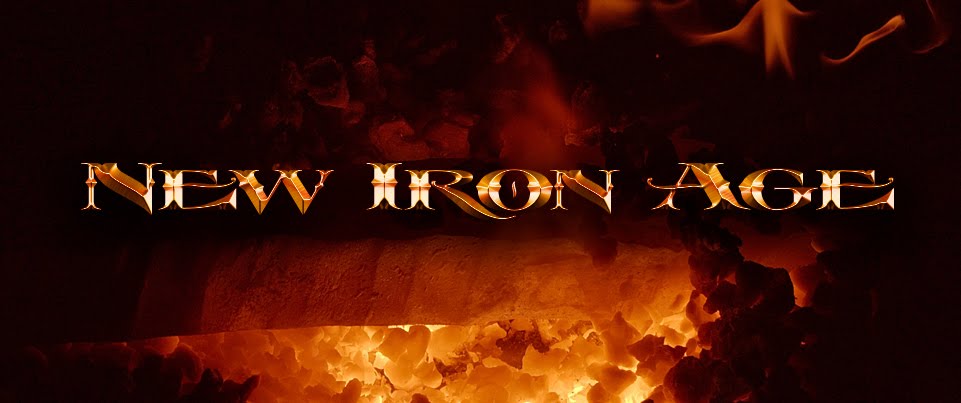This
movie was another product of that early-aughts surge of historical
epics in the wake of the success of Gladiator. It had been a while
since there had been a major-studio effort about King Arthur, and the
initial info about this film seemed to indicate they were focusing on
a more historically-plausible interpretation, rather than the more
fantastical, romanticized takes we more often get. That turned out
not to be at all true, but it did fuel some interest in this before
it was released.
It
is amusing to me that big-budget films about King Arthur only seem to
get worse over time. Excalibur was not a perfect movie, and
it didn’t get a lot critical respect at the time of its release,
but with the perspective of time it seems like the Platonic ideal of
Arthurian movies, and that things have only declined from there,
finally descending down to the level of 2017s King Arthur: Legend
of the Sword – a film which I will get to sooner than I would
like.
King
Arthur, the movie, starts with the premise of an actual
historical period – the days when the Roman Legions were pulling
out of Britain and abandoning it. Rather than Romans or native
Britons, Arthur and his knights are depicted as Sarmatian cavalry
attached to Roman service, thus forming a possible historical basis
for the legend of fearsome mounted warriors. Now, there is
historical evidence that some Sarmatian auxiliaries were in Briton
about the time this is supposed to be set – 467 AD – but they
were probably gone even by the time of the Roman withdrawal, which
was actually in 410, and there is no evidence of mounted units in
action.
The
other problem with this is that the cast of “knights” do not look
at all like Sarmatians. An Indo-Iranian people, some Sarmatians were
said to be blonde or red-haired, but as a steppe nomad race they
likely would have had the long-faced, long-nosed features of their
close relatives, the Scythians and the Huns. The actors playing the
knights not only don’t look anything like one another, they just
look British, largely because they are.
The
cast as a whole, however, is amazing, containing not only actors who
were big at the time, like Clive Owen as Arthur and Keira Knightley
as Guinevere, but a bunch of actors who would go on to being much
better known in years to come: Ioan Gruffud, Mads Mikkelsen, Joel
Edgerton, Hugh Dancy, Ray Winstone, Stellan Starsgard, and Ray
Stevenson – there are so many familiar faces here it’s a constant
surprise, and they are all earning their money, turning in better
performances than the material really demands.
The
story is pretty straightforward, with the ragtag band of warriors
first tasked with rescuing a Roman family, and then deciding to stay
after the legions leave to fight off the invading Saxons at the
climactic Battle of Badon Hill. The theatrical cut was trimmed for
violence, but the Director’s Cut on DVD has quite a lot of grit in
it. The action choreography is solid if unimaginative, and the gore
is satisfying, with a lot of head-chopping and limb-lopping. It
could be better, as there are a lot of times characters get hit and
act wounded but you can’t see any blood or where they were hit.
The
historical accuracy is, overall, a mess, with anachronistic weapons
and armor, Romans living north of Hadrian’s Wall, and the Saxons
(who already occupied large parts of England at the time)
inexplicably invading from across the sea, well north of the wall,
and then walking south. The withdrawal of the legions from Britain
was finished by 410, while this movie supposedly takes place almost
sixty years later. The Picts are called “Woads” for some reason,
and aside from painting themselves blue don’t seem to look
physically different from the rest of the cast. I do have to say
that this is certainly the only major studio film to have a Pelagius
cameo , or address the Pelagian Heresy in any way – even if
Pelagius actually died in Egypt almost forty years before the year
this movie is set.
It’s
a solid enough adventure, with a stellar cast and some good action
sequences, but the problem with Arthurian movies is you have to
either do the romanticized, Excalibur thing, or you have to go
the gritty, historical, more realistic route. This movie sold itself
as being historical, but then it wasn’t even close to that. So the
history nerds didn’t like it, and the people who wanted the high
fantasy, Tennyson/Malory approach didn’t like it either. By not
committing to one or the other, King Arthur just becomes
another action movie with some Arthurian names slapped on it. I
can’t help but think that if the filmmakers had gone in a more
dark/fantasy direction, with actual magic and the pagan wilderness
imagery, this could have been much better. But then I remember that
Legend of the Sword went hard with the fantastical elements,
and how that turned out, so maybe fantasy is not the way to go here.
There
is definitely the potential for a Sword & Sorcery take on
Arthurian legends. Start with the grounded, historical idea, then
add in some actual dark magic, a world where good and evil are
subsumed in the moral necessities of survival in the face of invasion
and social disintegration, and you could even throw in some monsters,
so long as you imagined them as some kind of prehistoric remnants –
like in The 13th Warrior. You could
come up with a dark, bloody, serious tale that would still have some
historic plausibility, and could still honor the ideals the Round
Table was meant to embody. In fact, it could be all the more
powerful if the knights stood all but alone against a dark, chaotic
world, striving for ideals they would never reach. That could be
awesome.























